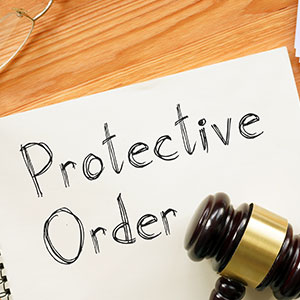
In this article, you can discover…
- What COCCA is, and how it differs from federal charges.
- Common mistakes to avoid if you are facing COCCA charges.
- How an attorney can help you navigate COCCA and protect your rights.
What Is COCCA In Colorado Criminal Law, And How Does It Differ From Federal RICO Charges?
COCCA stands for the “Colorado Organized Crime Control Act”. It is modeled after federal RICO organized crime laws but applies uniquely in the state of Colorado. When you are charged with a COCCA violation, you are being charged with a pattern of unlawful activity (as opposed to an isolated criminal act) through and on behalf of an organization. For example, if you are alleged to have been dealing illegal substances for a cartel.
What Are Some Signs That I Am Being Investigated For A COCCA Violation?
It can be very difficult to tell if you are being investigated for a COCCA violation. Law enforcement tends to be quite secretive and private about their investigation before charges are filed. In most cases, the only sign you’ll receive that you’re under investigation is when a detective or law enforcement reaches out to you for an interview.
They will usually only reach out to people whom they require to cooperate in order to build their case or have a grand jury return an indictment. You may also be contacted to testify in the grand jury indictment, as well.
What Constitutional Rights Do I Have During A COCCA Investigation?
During a COCCA investigation, you have the right to remain silent. You do not need to make any statements to investigators, as these statements could be used against you at trial. You also have the right to an attorney. These are two critical rights that you can and must exercise to protect yourself legally. The moment you realize you are under investigation, remain silent and reach out to a lawyer.
What Are Some Other Common Mistakes I Should Avoid If I Am Under A COCCA Investigation?
One key thing to avoid is destroying evidence. Never destroy, shred, delete, or burn any evidence that could be used against you, as this can lead to new charges.
Next, avoid telling possible witnesses what to do, say, or not say, as this can be construed as witness tampering. Finally, avoid speaking to law enforcement without your attorney present while the investigation is ongoing.
Your attorney will do far more than advise you when speaking to investigators. They can also help you seek out and preserve evidence that could be used in your defense, as well as interview witnesses who may be able to testify as to your innocence.
How Long Will A COCCA Investigation Last Before Charges Are Filed?
COCCA cases are typically investigated for an extended period of time. Most of these cases are referred through the grand jury, which meets monthly. The case will be pieced together in front of this jury over a couple of months to a year or more, depending on the complexity of the case.
Investigators may also need to subpoena bank records or cell phone records, and waiting to receive that information can take time, as well.
Can Working With An Attorney Early On Change The Outcome Of A COCCA Case?
This depends on whether your attorney has a thorough understanding of Colorado criminal law. A civil lawyer will not have that type of experience and could easily lead you astray during the legal process.
An experienced, good criminal defense attorney will help you avoid incriminating yourself, can reach out to law enforcement on your behalf, and help you better understand your legal rights as well as the case against you. For the best chances of success, it’s crucial to work with a legal team that understands COCCA and the complex criminal laws of Colorado.
Still Have Questions? Ready To Get Started?
For more information on COCCA investigations in Colorado, an initial consultation is your next best step. Get the information and legal answers you are seeking by calling (562) 715-3786 today.
